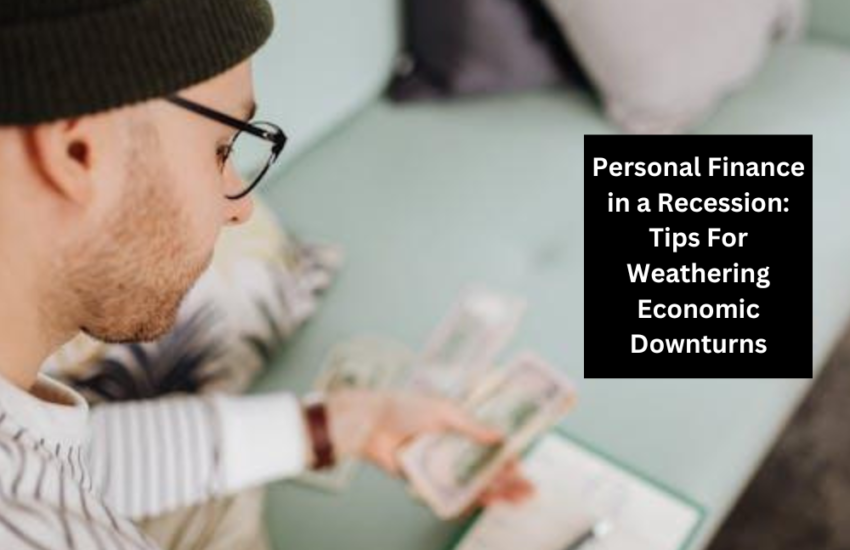Dealing with a recession isn’t easy when you don’t know what is around the corner. Bills are still very expensive during this period. You want to treat yourself but you can’t. You can’t even put money into your savings account because you are too busy paying for everything else.
It isn’t all doom and gloom during this period. All you need to do is get your head down and plan everything you wish to do. Let’s look at how you can manage your finances to control your budgeting and create habits that will lead to the financial legacy you desire.
Revisit Your Budgeting Sheet
The first thing you must do is revisit your budget. It will all change simply because you can no longer afford to treat yourself. You need to be cautious with your expenditure and that means going out less.
If you don’t have one already, we advise you to create a spreadsheet of all your expenses. That includes putting your wage on there and adding all the little extras such as home insurance, internet, electricity, rent/mortgage, credit card repayments and food bills. All these are expenses you must pay each month so make sure you have those. You must include commuting costs to and from work, whether a bus ticket or fuel for the week.
The next thing you must include on your list is your discretionary expenditure. That includes going out with friends, going out for dinner, paying for Netflix subscriptions and putting money away into a savings account. All these are expenses you can reduce in price if you need to.
Read: Financing for Chemical Manufacturing Companies: All You Need to Know
Focus On Your Emergency Savings
The next thing you need to be cautious about is your emergency fund. The emergency fund is something you should ensure you are keeping on top of, putting money away each month to ensure you are preparing for the unexpected.
To create a safe emergency fund, we advise you to put away three months’ worth of household expenses. It ensures you are prepared to pay your bills if something expensive comes up. That could be your car breaking down or your boiler. Maybe you will need emergency home repairs. Whatever it is, you need to be prepared for it.
Your emergency fund will keep you safe so you can still pay your bills when you need to.
Reduce Your Debt
Reducing your debt is something else we advise to keep you safe during the recession. That is if you are in debt. Interest rates will continue to chip away at your funds for the month so reducing your debt should be a priority.
If you have numerous debts looming over your head, debt consolidation may be the best strategy to tackle those debts. It combines all your current debts and puts them into one pot. Once they are in that pot, you can gradually pay this off with one monthly payment. It makes it much easier to manage and pay off your debts instead of paying them off with individual payments.
Stick With Your Investments
If you are investing every month and you have built a good investment portfolio, you should keep that investment. Yes, it is very tempting to sell your investments so you can keep treating yourself. However, that shouldn’t be the case. This investment portfolio is something you have been working on for months and if you think selling your investment is going to be a good idea then you’re wrong.
The problem with selling your investment is that you don’t know when to enter the market again. There is no perfect time to enter the investment market which is why you should stay in it. If possible, put small amounts of money into your portfolio to keep building it up.
Investors who stay invested during the peaks and the low points of investing are the ones who benefit the most from it. Whether you are saving for a mortgage on your house or it will be part of your retirement fund, you must stick with it. Only in complete emergencies should you take money out of your portfolio.
Stay Focused On Your Goals
The next thing you need to do is remain focused on the things that matter to you. The goals you wish to achieve, you need to stick to them. We understand that difficult times in the economy can knock you off track. However, staying focused is very important during this period.
During a recession, it is important to think about the what-ifs of life. That is the main reason why you need an emergency fund. If you have a financial plan such as saving for a mortgage or paying for a wedding, planning your finances during the recession is a great way to keep on track.
Summary
There are many things you need to do during a recession to ensure you don’t get into further trouble with debt. Keeping track of your budgeting is a great way to do this while staying focused on your goals and allowing you to continue to invest.
Debt is something we all try to avoid but sometimes it can be unavoidable. If you have current debt looming over your head, consider a DRO to help you deal with debt or speak to a debt advisor to find other suitable solutions.

